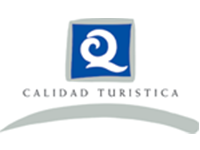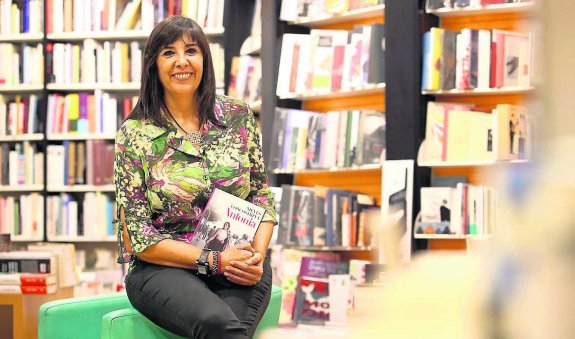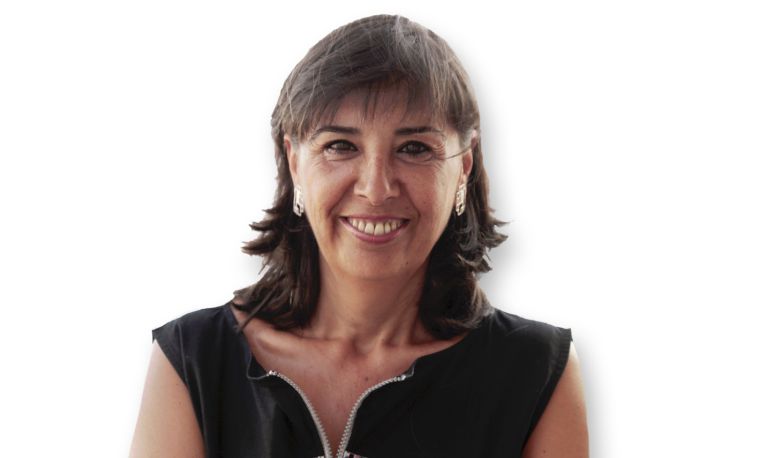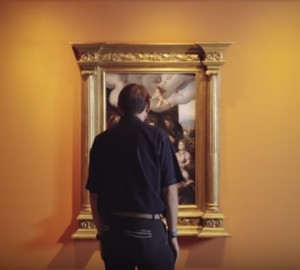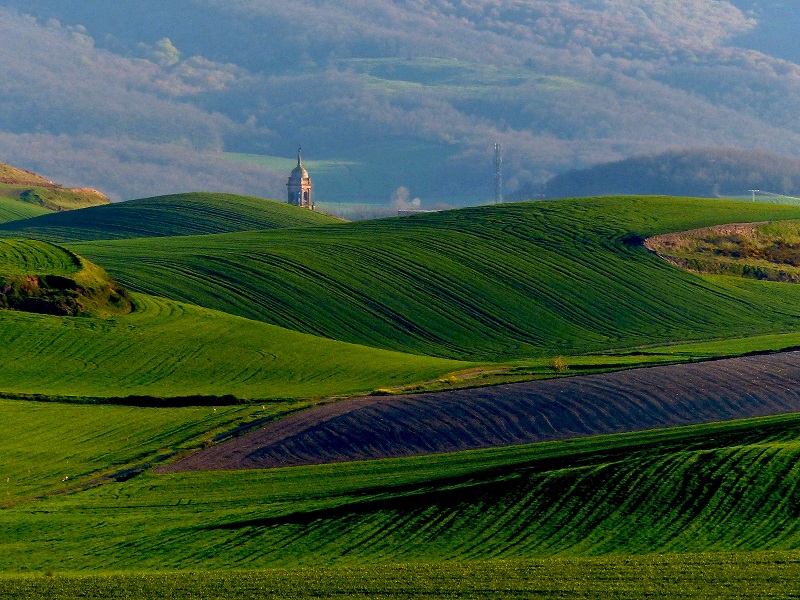"Life has to be drunk and eaten. I'd like to see death in a more natural way, without any bad feelings".
Nieves Concostrina, in sips and drabs
By Lali Ortega Cerón
On 13 May, at Maneras de Contar la Cultura del Vino (Ways of Telling about Wine Culture)
The radio programmes of the journalist and writer Nieves Concostrina, such as the now defunct Polvo eres on Radio 5; or the still-operative El Acabose (No es un día cualquiera on RNE) and Acontece, que no es poco (La Ventana on Cadena SER) bear witness to the fact that reality surpasses fiction, at least in the world of the living, even in the orbit of death. And vice versa.
Winner of the 2016 Ondas Award, Micrófono de Oro in 2010 and the Villa de Madrid Journalism Award, among others, this Madrid-born journalist, who also worked under the orders of news heavyweights such as Jesús Hermida and Mercedes Milá, combines her dual role as a communicator and writer with that of editor-in-chief of the magazine Adiós, published by Funespaña. In this magazine, whose name says it all, Nieves Concostrina began an ironic journalistic pilgrimage through history, solved enigmas and the curiosities that lie in death. And as with wine and its culture, the subject matter is surprising. And although seemingly familiar in form, unfamiliar in substance.
Desecration of the teeth of great composers, as happened to Brahms; the existence of a cemetery in Okayama, Japan, which for 400 years fed the mallows with a thousand amputated noses underground; or the coffins with alarms that we found in Chile to mitigate the fear of being buried alive (tapephobia), are some of the lights that those dead have left us today, and this life, as Nieves Concostrina has revealed to us over the years.
The maxim in journalism is that "facts are sacred, opinions are free". A principle that also applies to a subject as personal and metaphysical as the mystery of life and death. For those who consider it an enigma, of course, because in the case of Nieves Concostrina, when we leave... we leave. "It's like watching a documentary about lions on La2: they are born, they develop and they die. Like humans, even though we are at the top of the pyramid of animals, the rational ones, and we have symbolic thought, reasoning, a certain intelligence. But death is not a mystery: we die and that's it. And then others come.
As we are still around for the time being, we invite you to read on and draw your own conclusions.
"Life has to be drunk and eaten. I'd like to see death in a more natural way, without any bad feelings".
What are your most developed senses on a daily basis?
Ummmm... Now that I'm older, I think I'm getting a journalistic nose for what might be of interest on the radio. It's as simple as asking myself what interests me, because as I'm nothing special, when I read something funny or curious, I think that it will arouse the same interest in others. Then, in life, I use all my senses, especially taste. I love to eat! And beers with friends, which are our best asset. Parents die. Children leave (although I don't have any)... and this is something that many don't accept. That's why, when they all leave, instead of mourning, you have to be with your friends, those who circulate with you throughout your life. Moreover, they agree with you in their tastes.
After so many years of diving into this rather lurid subject, how do you see life?
I think I see it the way it has to be seen: it has to be drunk and eaten, it has to be lived and enjoyed. We can't waste a minute (although we all do, but that's the theory) with nonsense, nor with fools. Toxic people have to be pushed aside and we have to move on, because it doesn't last long and I'm one of those who think that afterwards there is nothing! If there was something, we would already know about it. And I affirm this with the same forcefulness that others affirm that there is.
With a good professional nose, it's amazing how much information can be extracted from a corpse - we're still worth more dead than alive!
No, no, we are worth much more alive! What happens is that when someone knows how to read, a deceased person tells a lot of things. To a medical professional, to a forensic scientist, to an archaeologist, he tells absolutely everything. And to everyone else, too. Evita Perón's death story reveals the convulsive political moment of her country. They talk about the culture, the rites of a country. In a country with a Christian tradition, for example, on All Souls' Day, the dead reveal the custom of bringing flowers, even if they are forgotten for 364 days. But at least for one day, the poor dead receive their flowers.
Nieves Concostrina. Photo: Cadena Ser
In your book Y en polvo te convertirseás, thanks to 153 contributors, you compile images of thousands of epitaphs, from the most hilarious to the sweetest or wittiest: authentic posthumous jewels in which the deceased has the last word. Mummy, we'll be very late; wait for us awake; Here you lie, and you do well. You rest and so do I, or This is incredible, are some of these phrases for eternity. Are we Spaniards creative?
We are not particularly ingenious, just like those you might find in France, Italy or Argentina. Human beings are just as similar.
Have you decided who will accompany you?
No, I haven't thought about it.
Death is a very serious thing. What do you take with humour?
I mourn the death of decent people, I mourn when someone loses someone: no jokes with that. But with humour, life. And as I am alive, I am a journalist and I talk about some issues that have to do with the dead (after a while), I take it with humour. It would be nice if I couldn't!
One of the people who took part in the aforementioned book visited the cemetery of Villafranca del Penedés, an area that prospered after the phylloxera that devastated the vineyards of France. Curiously, a fact that was reflected in the cemetery.
I don't remember, but it fits perfectly. In any cemetery in a big city, or in an important town, there are large pantheons because the aristocrats and the great families, whether from the wine, metal, livestock, saffron... or the indianos of Cantabria or Asturias, once they were dead, wanted to leave their stamp and their mark. They had to have the best pantheon in order to give their noses to the next door neighbour.
So there are classes after the dead too!
I don't know where I read the other day that at the end of a game, the king and the pawn go back into the same box. After death there are no more classes, we are nothing. It's an arrogance that shows what human beings are like, with those pantheons full of crosses, intended to last a lifetime. And with the passage of time they are mouldy, abandoned and there is no one to maintain them.
We are really familiar with death
No, because it has not allowed us to relate to death in a natural way and because it has been hidden from children. With euphemisms. Then there are such stupid circumstances as when Snowflake dies in Barcelona and they take the little ones to say goodbye. But then the death of the grandfather in hospital is hidden from them. Because although I'm not religious and I don't believe in God, that Catholic upbringing that was forced on me, even though I didn't want it, has surrounded me with taboos and bad things about death that I find it hard to shake off. I would like to see death in a more natural way, to understand that it has always been like this and that it is better to accept it. A natural death, of course, not before its time. I'm sorry, but I think we have a burden that will take generations to get rid of. At least now there are funeral services and modern companies with which you can organise your own secular service.
Bali or Guatemala are examples of very special funeral rites. And, in the first case, very serene.
The most beautiful rites are those that combine pagan traditions. They are the most colourful and each village has created its own syncretism. Indonesia and its sense of death are particularly striking to me, because nowhere as in Bali have I seen that they really believe the things they preach. There I have attended a cremation rite, because it is public, it is an official farewell. And it's very curious because nobody cries, because they are convinced that the dead person is going to a better place. And here they shed tears! Hong Kong too, with its sense of the afterlife. They put fruit on their dead, they come frequently and renew the offerings. The dead person is close to the loved one: no religion or ideology gives you that.
Speaking of wine - your first sip?
Well, I do remember, because I didn't like wine. My grandfather was a drunkard (not an alcoholic, which is very different). He gave my mother a very hard time, and there was no wine in my house. What's more, in my house we ate with milk. When I started in journalism, when I was 19 or 20 years old, at Diario 16, I remember a press lunch, although not the reason, in one of the best restaurants in Madrid: Jockey. They encouraged me to try the wine and I didn't like it at all, although it was excellent. From then on I learnt to drink it, not to refuse something I knew was good. Personally, I am aware of what I like and what I don't like; the one that goes down my throat and causes a throat clearing, or the one that goes down smoothly. I don't understand beyond that. And I'm a white wine drinker, even though they say that good wine drinkers are red wine drinkers. I'm a fundamentalist!
With whom would you share a glass of wine... dead or alive?
Dead with nobody. (laughs).
I'll put it another way... a person who is no longer with you and with whom, because of their life or profession, you would like to talk...
Oh, there are so many! Not because I admire them or not, but out of curiosity. I would have a glass of wine with Napoleon to ask him why he made the mess he made, to find out when this man went off the deep end. With Marie Antoinette, to find out why she was such a fool... With Evita Perón, Stalin, Lenin, Hitler... With Franco I wouldn't have a drink, I'm not even interested in what he thinks! There are people I'd like to meet... not to share a glass of wine, but to know, to understand what was going through their minds. Well, I take Hitler back, he was a madman.
And outside the political sphere?
Well, maybe with Cervantes. And to know what the damned place in La Mancha was, because I'm convinced it was the first thing that came to his mind. I would also ask him, among other questions, why in the course of two books neither Don Quixote nor Sancho Panza enter a church.
Continuing with the lexicon of a subject you have mastered... Have you ever been told that "Snow, you look great!
No, no. (laughs). A few years ago probably yes, but not now.
The last of the dead that fell to you?
Let's see... not really.
How many colloquial phrases we have on this subject!
Well, yes. I'm thinking and... I haven't had any recently. Maybe I'm too free now, working and living. I waste just enough time. And few conventions. On the contrary: I'm very happy with my work, my life and my friends. I say what I want in an orderly way, I make use of my freedom and if I don't like it, I change the station. If I've been killed, I must have got rid of it quickly, or avoided it, because I don't remember. (laughs)
When did you discover this thematic niche in journalism?
He discovered me through a question of work necessity. I lost my job at the newspaper and the one I had was a magazine about funeral services in Madrid, so I had to learn the subject matter and information about the sector. The director of the magazine Adiós ( which still exists), Jesús Pozo, knew how to give it a different approach, a cultural air. I discovered a wealth of information that I had never dealt with before, a very interesting world, and from there I made the proposal to the radio station.
Among your published books we find titles such as "Illustrated Deaths of Humanity" or your first novel in 2004, "Antonia", inspired by your mother. How has your family influenced you?
If you have read the book, you will see that my mother was illiterate, she still is, and my parents were a very poor family, with no education. I did have that opportunity and I did the rest, with a lot of effort. I decided to write the book Antonia because in this country nobody talks about that war and post-war period, because they are still illiterate: they don't want to share the miseries they went through and the fact of leaving that Spain that had sunk them. But the stories don't leave the four walls. After hearing it so many times at home, I decided that, as a journalist, I had to reflect it. I'm proud of where I come from and, once I've told it, I don't get caught up in things. And my mother's advice to me was "hurry up, it's coming to an end".
On Saturday 13 May at Vivanco what's in store for us? Will you be giving any advice on how to rest in peace?
(laughs). To die at ease, without sticking your finger in the next guy's mouth. Once you die... of course, you're asking me and you know how I think!
Well, the answer is also useful for resting in peace when you go to sleep.
That's what resting is all about! (laughs). The same thing: with a clear conscience, despite the nerves at work, despite the boss's little bitch, you sleep soundly. And to rest definitively, you know... We are afraid of death. I don't want to die because I have a great time here and deep down we suffer because we don't want to miss it. But as Machado said, when you are, death is not. And when death is, you are no longer.
Photo at the top of the article: El Comercio


